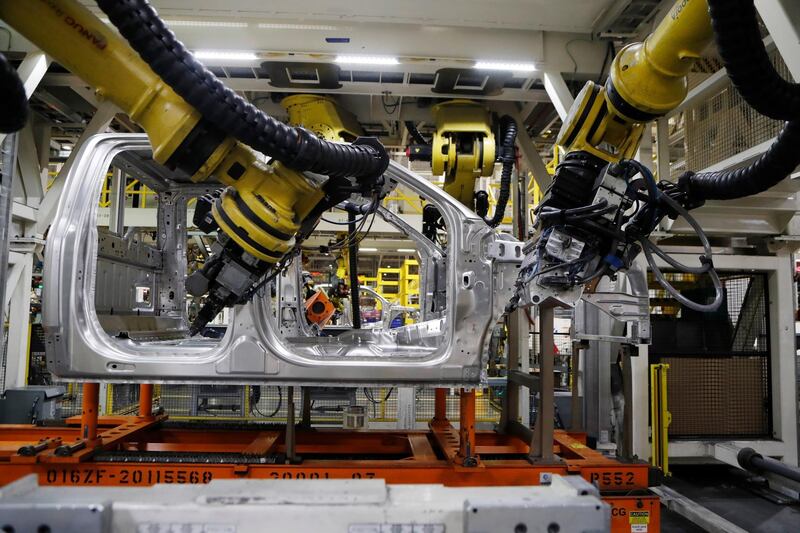Ford is partnering Walmart, the world’s largest retailer, to begin laying the groundwork for a driverless grocery delivery service.
The two companies will test out the concept as part of an existing grocery-delivery partnership between Postmates and Walmart that’s going to be available in 800 stores across more than 100 US metro markets by the end of the year. Ford vehicles will eventually be mocked up to appear autonomous and simulate the process of consumers retrieving their groceries without the help of a human driver.
As self-driving cars come closer to reality, vehicle makers and tech giants are increasingly viewing driverless deliveries as even more lucrative than the robo-taxis that will initially hit the streets to transport commuters. Automating the arrival of goods to consumers’ front porches would slash shipping costs roughly in half, experts say. Consultant McKinsey & Co predicts that in less than a decade, 80 per cent of all items will be delivered autonomously.
Ford has already been testing autonomous deliveries of groceries and other goods with Postmates and Domino’s Pizza. Alphabet’s Waymo, which plans to launch a commercial driverless car service next month, has a partnership with Walmart to transport online shoppers to its stores, Bloomberg said.
Last month, The National reported that Volvo is planning to roll out its first fleet of autonomous vehicles (AVs) to the European market by 2021.
"So far, we have not decided on how we will roll out our first fleet of commercial AVs but it will be a limited edition," Marcus Rothoff, autonomous drive solution architect, director at Volvo, told The National.
“Probably the first roll-out will be done in Europe before we start looking at other markets. In the Middle East, the UAE could be a potential market considering the infrastructure growth, good roads and better connectivity.”
The UAE is among the top 10 countries in the world prepared to accommodate driverless vehicles, according to a report by consultancy firm KPMG.
_______________
Read more:
US makers of driverless cars must get past legislative speed bump
Largest US grocer Kroger tests driverless vehicle deliveries
_______________
Brian Wolf, director of business development for Ford's autonomous vehicle business, said the car maker and the grocer believe "that self-driving vehicles have an important role to play in the future of delivery.
"Together, we’ll be gathering crucial data about consumer preferences and learning the best way we can conveniently connect people with the goods they need.”
Ford has underwhelmed some investors by plotting a later arrival for its autonomous vehicles than competitors including Waymo and General Motors’ Cruise. The company has vowed not only to deliver a purpose-built self-driving vehicle by 2021, but also a viable business model to go along with it.
Still, the approach Ford has taken appears to have turned heads at one major competitor. Volkswagen AG has been in talks with the company about joining forces on various projects and is mulling an investment in Ford’s self-driving partner, Argo AI, people familiar with the matter told Bloomberg News earlier this month.
Others grocers are also eyeing a self-driving future. Kroger, the largest grocery chain in the US, announced in June a partnership with autonomous-vehicle start-up Nuro to test the delivery of groceries in unmanned road vehicles that can steer from the store to a customer’s home.






